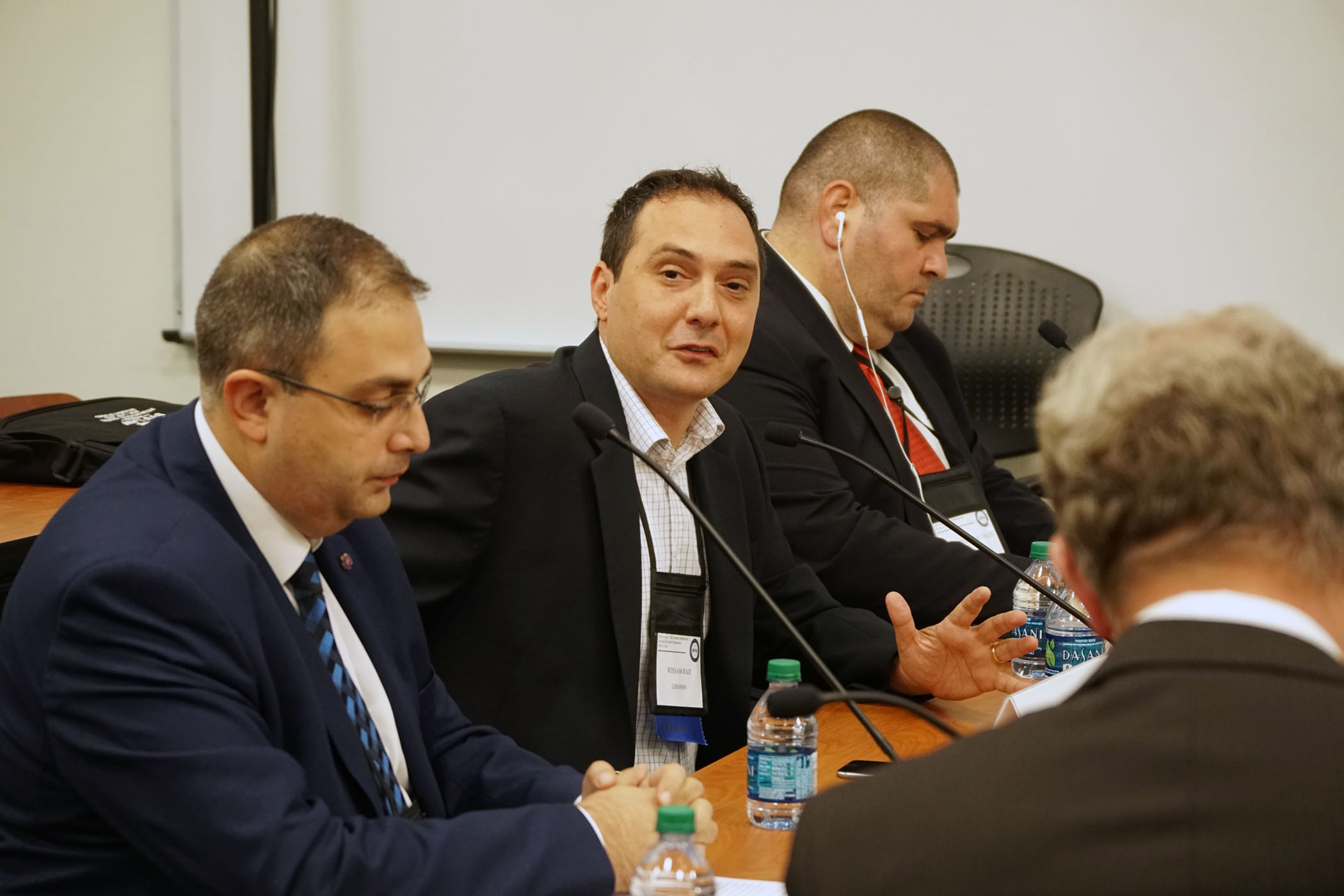





Photo credit: Matt Imbler
by Ryan Hughes
In a session moderated by David W. Kirkham, Academic Director for the Brigham Young University London Centre and Senior Fellow for the Comparative Law and International Policy at the International Center for Law and Religion Studies at the J. Reuben Clark Law School, Khalid Jamal Talya, from Iraq, Wissam Raji, from Lebanon, and Vladimir Vardanyan, from Armenia, discussed the various problems that are exacerbating religious conflict within the Middle East.
Khalid Jamal Talya, Director of General Christian Affairs at the Ministry of Endowments and Religious Affairs in Iraq, described the state of religious minorities such as Christians and Yazidis in Iraq and especially under the ISIS regime. He had a video of refugees and displaced persons playing silently in the background throughout his presentation to add a more personal touch to the horrific statistics of the last few years. He outlined the exodus of Christians that has taken place since the fall of Saddam Hussein and how this number spiked after ISIS began its reign of terror. He expressed gratitude for the Kurds in opening up areas and resources to take care of the vast number of refugees. He also described the genocide of the Yazidis and the measures that state is taking in trying to free those who are still alive under ISIS rule.
Wissam Raji, Associate Professor and Chair of Mathematics at the American University of Beirut, focused on the importance of maintaining balance between the different religious groups in Lebanese society. He described how the Lebanese government proportionally represents the religious groups in the country and how the government has changed over time to address changes in this demographic. In addition, he stressed the importance of maintaining equal power in the government between the Maronite Christians and the Muslims. He said if this delicate power balance is lost, many Christians are likely to leave the country and end the religious pluralism that currently exists in the state.
Vladimir Vardanyan, Head of Legal Advisory Service to the Constitutional Court of Armenia, discussed the importance of religious norms and how they could be better used as a background for international understanding, especially in the role religion has come to play in armed conflicts. He stressed that religious norms might give a better framework and understanding to the complexity of armed conflicts around the world compared to current Western and Europe-centric theories. In particular, he outlined how understanding religious norms would help people to understand the separation between ISIS and all other Muslim states throughout the world. He also recognized a potential problem with religious norms because they can always be twisted to represent conflicting viewpoints.
